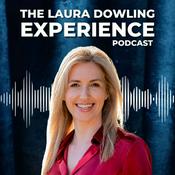183 episodes

Season 6 Launch: A Year of Tools For Homeschooling (and Classroom) Parents
05/1/2026 | 19 mins.
Ready for a season that actually makes parenting, homeschooling, and supporting your child easier? We’re kicking off season six with a clear promise: weekly, expert-driven conversations that turn overwhelm into action for families of struggling learners—homeschoolers and classroom parents alike.In 2026, you’ll hear from experts around the world on topics relevant to kids with learning struggles and special needs as well as curriculum choices and support for all types of students. Starting with homeschooling guru Christy Faith, we've got a lineup you won't want to miss. For example, occupational therapist Sarah Collins returns with practical strategies for executive function and sensory processing—think sensory diets that fit real lives, smoother transitions, and routines that build independence without battles.We go deep on writing and thinking with Andrew Pudewa, exploring how background knowledge fuels expression and how breaking skills into tiny steps wires stronger pathways. Expect concrete takeaways for reluctant writers, from copywork and oral narration to deliberate practice that sticks. Scientist and autism expert Dr. Teresa Lyons brings a sharp, evidence-first lens to epigenetics, nutrition, and supplements, cutting through social media noise so you can make decisions with clarity and care.You’ll also get a no-nonsense guide to choosing methods and reading curricula by fit, not hype—what each approach does well, where the gaps are, and how to supplement at home. We tackle technology and the brain with balanced guardrails: when screens help, when they hinder, and how to protect attention, sleep, and deep work. And we widen the lens with survivalist Timber Cleghorn on fear, faith, and resilience, connecting outdoor grit to everyday parenting courage.We’re back to weekly drops, launching a monthly newsletter packed with free PDFs and guides, and hitting conferences across the country to meet you in person. Subscribe now, share with a friend who needs practical hope, and leave a quick review to help more parents find tools that work. What topic should we tackle next? Email us at [email protected] US:The Brainy Moms is a parenting podcast hosted by cognitive psychologist Dr. Amy Moore. Dr. Amy and her co-host Sandy Zamalis (& sometimes Dr. Jody Jedlicka or Teri Miller, MS PSY) have conversations with experts in parenting, child development, education, homeschooling, psychology, mental health, and neuroscience. Listeners leave with tips and advice for helping parents and kids thrive. If you love us, add us to your playlist and follow us on social media! CONNECT WITH US:Website: www.TheBrainyMoms.com Email: [email protected] Social Media: @TheBrainyMoms Subscribe to our free monthly newsletter Visit our sponsor's website: www.LearningRx.com

Homeschooling Tips For Military & Special-Needs Families | Natalie Mack & Ashley Barta
15/12/2025 | 56 mins.
Are you a military or special needs family feeling torn between stability, services, and what your child actually needs to thrive? We sit down with Natalie Mack and Ashley Barta, two military homeschool leaders who have navigated frequent moves, special needs, and high school planning—then turned those lessons into practical guidance for families everywhere. Their stories show how homeschooling can transform from a last resort into a flexible, confidence-building path that adapts to your life instead of demanding you adapt to it.We unpack the “now what?” moment after withdrawing from school and offer a clear starting plan: distinguish online school from true homeschooling, take a short deschooling reset, and use interests to weave core subjects into meaningful projects. If calculus or chemistry makes you sweat, we share how outsourcing, co-ops, tutors, and dual enrollment let parents become curators, not solo teachers. For high school, we flip the script: begin with the destination—college, trades, service, entrepreneurship—and reverse-map requirements with transcripts that reflect real initiative, not just seat time.Special needs families will find concrete strategies that honor therapy schedules, energy windows, and real progress. Ashley explains how to embed OT, speech, and PT goals at home, use puzzles, games, and assistive tech for literacy and math, and embrace the power of the pause. We also tackle the socialization myth with a richer picture of sibling bonds, multi-age learning, and intentional community. For military families and anyone moving often, we highlight how virtual networks serve as lifelines to local co-ops, park days, and inclusive groups—plus what leaders can do to genuinely welcome neurodivergent learners and short-term volunteers.If you’re craving educational choice with confidence, this conversation is your homeschool roadmap—practical, hopeful, and real about the work involved. Subscribe, share with a friend who needs encouragement, and leave a review to help more families discover tools that make learning lighter and life-giving. What’s one change you’ll try this week?ABOUT US:The Brainy Moms is a parenting podcast hosted by cognitive psychologist Dr. Amy Moore. Dr. Amy and her co-host Sandy Zamalis (& sometimes Dr. Jody Jedlicka or Teri Miller, MS PSY) have conversations with experts in parenting, child development, education, homeschooling, psychology, mental health, and neuroscience. Listeners leave with tips and advice for helping parents and kids thrive. If you love us, add us to your playlist and follow us on social media! CONNECT WITH US:Website: www.TheBrainyMoms.com Email: [email protected] Social Media: @TheBrainyMoms Subscribe to our free monthly newsletter Visit our sponsor's website: www.LearningRx.com

Self-Harm In Teens: Advice for Parents Navigating Non-Suicidal Self Injury | Stacy Schaffer
01/12/2025 | 45 mins.
Teen pain often wants proof, and too many families discover self-harm the hardest way—by finding the evidence. Dr. Amy sits down with returning guest Stacy Schaffer, a licensed professional counselor, to unpack non-suicidal self-injury with clarity and care. We name what NSSI is and isn’t, explore why it seems to provide fast relief to hurting teens, and talk through what to do the moment a teen opens up. You’ll hear how shame keeps kids silent, how calm presence invites honesty, and why a clear plan beats punishment every time.We dig into real-world guidance for parents, coaches, and teachers: how to thank a teen for their trust, offer choices for bringing caregivers into the conversation, and separate safety steps from secrecy-inducing consequences. Stacy explains the addictive loop—dopamine, relief, and reinforcement—that can build around cutting or burning, and how speaking to a teen’s own values and near-future moments (prom, summer jobs, sports uniforms) often lands better than distant warnings. We also highlight the long tail of scars and how regret can surface even after the behavior stops.Most importantly, we share practical tools to bridge the urges: sensory substitutions like sour candy, ice, and specialized fidgets that create safe discomfort; 15-minute “urge surfing” to let intensity pass; and when tracking “sober days” can motivate rather than shame. We cover safety planning—locking up sharps without locking down trust—and the power of a supportive circle of adults beyond the home. Throughout, we keep the focus on curiosity over judgment and parenting the child you have in today’s always-watched, always-connected world.If this resonates, subscribe, share with a friend who needs it, and leave a quick review. Your feedback helps more families like you!ABOUT US:The Brainy Moms is a parenting podcast hosted by cognitive psychologist Dr. Amy Moore. Dr. Amy and her co-host Sandy Zamalis (& sometimes Dr. Jody Jedlicka or Teri Miller, MS PSY) have conversations with experts in parenting, child development, education, homeschooling, psychology, mental health, and neuroscience. Listeners leave with tips and advice for helping parents and kids thrive. If you love us, add us to your playlist and follow us on social media! CONNECT WITH US:Website: www.TheBrainyMoms.com Email: [email protected] Social Media: @TheBrainyMoms Subscribe to our free monthly newsletter Visit our sponsor's website: www.LearningRx.com

Gaslighting, Narcissism, and Other Teen Buzzwords: A Therapist's Guide for Parents | Stacy Schaffer
17/11/2025 | 1h
Teens today live at the intersection of real mental health risks and viral misused language like gaslighting, narcissism, and DID. On this episode of The Brainy Moms podcast, Dr. Amy sat down with children’s therapist Stacy Schaffer to unpack how parents can support mental health without turning every rough patch into a diagnosis. Stacy shares the story behind her new book and the core idea that guides her work: integrate tough histories into practical, present-day tools so kids feel seen, safe, and capable.We dig into the messy middle of modern childhood—where TikTok trends meet group-chat drama and where grooming, exclusion, and “subtle” cruelty often fly under the bullying radar. Stacy offers concrete steps for delaying social platforms, keeping an open pulse on online connections, and having frank, age-appropriate talks about consent, safety, and the law. We also explore why framing therapy as a gift changes everything, and how to invite teens into the process so they feel respected rather than “sent.”A big theme is language. Words like trauma, gaslighting, narcissist, and DID carry weight and meaning; when they get stretched to cover discomfort or disagreement, everyone loses clarity. Stacy walks us through what those terms actually mean, when they apply, and how to teach kids a simple 1–10 scale that builds perspective without dismissing pain. We also clarify dissociation versus dissociative identity disorder and offer scripts that keep compassion high while holding responsibility steady: “You’re in charge of all your parts.”Along the way, we talk about modeling healthy conflict at home, building emotion regulation, and helping kids collect “data” from hard moments they survived. If you’ve wondered how to respond when your teen throws out a buzzword, how to know when it’s time for counseling, or how to keep kids safer online, this conversation delivers calm, clear guidance you can use today.About Stacy SchafferStacy Schaffer is a Licensed Professional Counselor with over twenty years of experience helping children, teens, and young adults navigate emotional and behavioral challenges. Based in Arvada, Colorado, she is the founder and director of Stacy Schaffer Counseling and specializes in both grief therapy and Synergetic Play Therapy. Her extensive training includes a Master's Degree in Professional Counseling from Ottawa University, a Graduate Diploma in Christian Counseling from Phoenix Seminary, and certifications in Synergetic Play Therapy and EMDR (Eye Movement Desensitization and Reprocessing). She is a proud member of both the National Association of Play Therapy and the Colorado Association for Play Therapy. She’s the author of the book, With Love from a Children's Therapist about lessons she’s learned from her practice.About UsThe Brainy Moms is a parenting podcast hosted by cognitive psychologist Dr. Amy Moore. Dr. Amy and her co-hosts have conversations with experts in parenting, child development, education, psychology, mental health, and neuroscience. LABOUT US:The Brainy Moms is a parenting podcast hosted by cognitive psychologist Dr. Amy Moore. Dr. Amy and her co-host Sandy Zamalis (& sometimes Dr. Jody Jedlicka or Teri Miller, MS PSY) have conversations with experts in parenting, child development, education, homeschooling, psychology, mental health, and neuroscience. Listeners leave with tips and advice for helping parents and kids thrive. If you love us, add us to your playlist and follow us on social media! CONNECT WITH US:Website: www.TheBrainyMoms.com Email: [email protected] Social Media: @TheBrainyMoms Subscribe to our free monthly newsletter Visit our sponsor's website: www.LearningRx.com

Raising Career-Ready Kids | Dr. Tega Edwin
03/11/2025 | 48 mins.
What if helping your kid find “the right career” starts with removing the pressure to choose one? On this episode of The Brainy Moms Podcast, Dr. Amy and Sandy sit down with counselor and career coach Dr. Tega Edwin to rethink how families approach work, college, and the messy middle in between. From fifth-grade classrooms to college advising offices, she’s seen how early biases about gender and prestige quietly close doors—and how simple exposure to real people in diverse roles opens them again.We unpack a practical roadmap: start with exploration in childhood, not decisions; move into skill-building and option-finding in the teen years; and treat careers as fluid expressions of who we are, not final destinations. Dr. Tega shares classroom-tested ideas that make pathways tangible. For parents guiding older teens, we dig into smarter college strategy—sampling classes, staying undeclared when helpful, using career services early, and avoiding the debt spiral of constant major changes. You’ll also hear how to translate any degree into marketable skills, and why “What Can I Do With This Major?” belongs in every family’s toolbox.Money worries fuel career fear, so we go straight at financial literacy: budgeting, saving, and investing as the bedrock of freedom to explore. We talk about leveraging your network for shadowing, coaching social skills for the workplace, and turning part-time jobs into lessons in EQ, advocacy, and professionalism. And when a dream is blocked—by health, academics, or reality—we talk about redirecting it without crushing it, honoring the spirit behind the goal. Along the way, we challenge parents to audit their own beliefs about work, because kids learn from what we model, not just what we say.If you’re ready to replace anxiety with clarity and give your kids tools to pivot with purpose, hit play. Subscribe, share this episode with a friend who’s stressing about career and majors, and leave a review with your biggest takeaway so more families can find it.ABOUT US:The Brainy Moms is a parenting podcast hosted by cognitive psychologist Dr. Amy Moore. Dr. Amy and her co-host Sandy Zamalis (& sometimes Dr. Jody Jedlicka or Teri Miller, MS PSY) have conversations with experts in parenting, child development, education, homeschooling, psychology, mental health, and neuroscience. Listeners leave with tips and advice for helping parents and kids thrive. If you love us, add us to your playlist and follow us on social media! CONNECT WITH US:Website: www.TheBrainyMoms.com Email: [email protected] Social Media: @TheBrainyMoms Subscribe to our free monthly newsletter Visit our sponsor's website: www.LearningRx.com
More Health & Wellness podcasts
Trending Health & Wellness podcasts
About The Brainy Moms
Listen to The Brainy Moms, The Laura Dowling Experience and many other podcasts from around the world with the radio.net app

Get the free radio.net app
- Stations and podcasts to bookmark
- Stream via Wi-Fi or Bluetooth
- Supports Carplay & Android Auto
- Many other app features
Get the free radio.net app
- Stations and podcasts to bookmark
- Stream via Wi-Fi or Bluetooth
- Supports Carplay & Android Auto
- Many other app features


The Brainy Moms
download the app,
start listening.






































